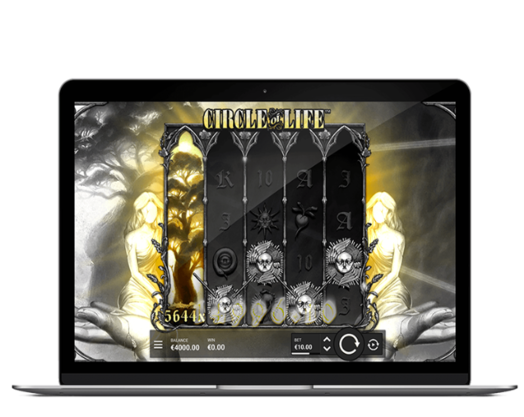Brazil Gambling Tax Crisis
Brazil’s gambling sector is in uproar following the government’s decision to raise taxes on licensed betting operators by 50%, a move industry leaders say threatens investor confidence and strengthens the country’s already sizable illegal gambling market.
The provisional measure, announced in June, increases the operator tax rate from 12% to 18% of gross gaming revenue (GGR). The hike comes less than six months after Brazil formally launched its regulated online betting market, and just months after companies paid BRL30 million (USD $5.5 million) each for licenses to operate.
Operators and trade bodies are now warning that the sudden change could undo years of regulatory work aimed at establishing a legal, accountable betting market. “They agreed to invest hundreds of millions into this venture and then six months down the road they just change the rules of the game without asking you,” said Eduardo Ludmer, head of legal at BetMGM Brazil. “This undermines trust in the entire process.”
Fiscal Pressures Behind the Tax Increase
Industry representatives argue the timing and lack of consultation reflect poorly on Brazil’s business environment.
“It’s not reasonable to come and start to change everything after only five months,” said Fernando Vieira, executive director of the Brazilian Institute of Responsible Gaming (IBJR). “It sends a message that Brazil is a complicated place to do business.” Industry analysts say the abrupt hike adds to growing legal and regulatory uncertainty in Brazil’s betting sector. The Supreme Federal Court is currently reviewing the constitutionality of Brazil’s betting laws, after a legal challenge filed by the country’s third-largest trade union.
Operators now face a cumulative tax burden nearing 50% when including income, municipal, and other levies—levels Ludmer described as “prohibitive. “We want this country to thrive,” he said. “But that depends on legal certainty and fair, predictable taxation. You can’t grow a legal market in this kind of environment.”
Trade bodies such as the IBJR and the National Association of Games and Lotteries (ANJL) warn that the tax increase could deter new entrants and force existing operators to reconsider their positions, potentially costing the government an estimated BRL2.8 billion in lost licensing revenue. A major concern among stakeholders is that higher taxes will erode the competitiveness of legal operators and push consumers toward unregulated alternatives. The IBJR estimates that 50% of Brazil’s betting activity already occurs through illegal operators, a figure it warns could rise to 60% if the tax hike is enacted permanently. These offshore platforms often operate with impunity, don’t pay taxes, and avoid consumer protection regulations.
“We have criminals doing criminal activities without any enforcement,” Ludmer said. “If there are no sanctions, there’s no deterrent.” The national telecom regulator, Anatel, is reportedly struggling with limited resources, hampering its ability to block illegal sites. Meanwhile, calls for the Central Bank to fine payment providers who support unlicensed operators have gone unanswered.
Political Pushback and Industry Mobilization
Despite the government’s push, there are signs the measure may face resistance in Congress. Hugo Motta, a key figure in the Chamber of Deputies, has said the tax hike is unlikely to be approved in its current form. Both the IBJR and ANJL have launched lobbying efforts to educate lawmakers on the potential consequences. They argue that raising taxes could have the opposite of the intended effect by weakening the legal market’s ability to compete and contribute to public revenues.
The ANJL has submitted a technical report to congressional leaders, while the IBJR published a study showing that reducing the illegal market by just 10% could generate more tax revenue than the proposed hike. “Education is key,” Vieira said. “Most parliamentarians lack basic understanding of how the industry works. We need to bridge that gap.”
Historically fragmented, Brazil’s betting sector has recently taken steps to present a more unified front. In June, the ANJL and IBJR—representing over 90% of the legal market—signed a cooperation agreement aimed at strengthening their advocacy efforts. “It is time, more than ever, for unity,” said ANJL President Plínio Lemos Jorge. “Over-taxation compromises the viability of the legal sector and strengthens the illegal one.”
You buy a BRL30 million licence, you have a business plan based on a 12% tax rate, and then six months later they just change the rules of the game.
Outlook: Hope or Doubts
There remains optimism among some industry leaders that the measure will not become permanent.
“We are confident in the dialogue with the authorities,” Lemos Jorge said. “The regulated market is creating jobs, generating revenue, and deserves stability.” Yet even if the measure is overturned, industry insiders say the episode underscores a deeper issue: Brazil’s regulatory unpredictability. The sector’s launch was already delayed for years due to bureaucratic and legislative hurdles, allowing the illegal market to flourish.
For companies like BetMGM and others heavily invested in the country, the stakes are high. Whether Brazil’s lawmakers will heed the sector’s warnings remains uncertain.







